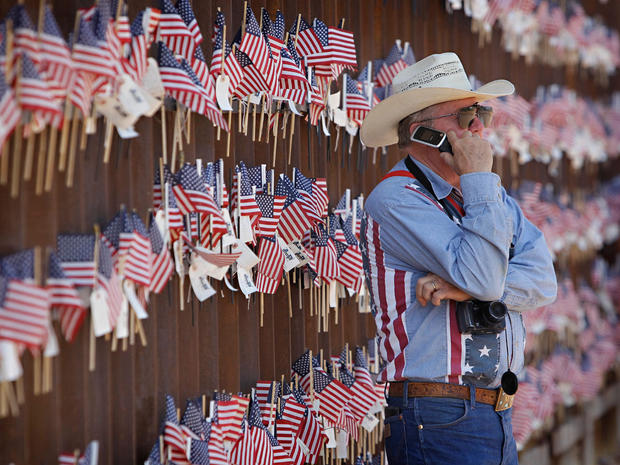Strict Arizona immigration law gets Supreme Court blessing
The Supreme Court gave its blessing today to one of the strong immigration control laws passed by Arizona, a law that has served as a model for similar measures in other states.
Arizona requires businesses to use the national eVerify system to check workers immigration status. Licenses are revoked when illegal immigrants are intentionally employed.
The Chamber of Commerce and labor groups formed a powerful coalition to challenge the law. They argued it steps on the federal government's broad immigration powers.
Conservatives carried the day in the 5-3 vote. Chief Justice John Roberts said while federal law bars states from imposing civil and criminal penalties for immigration violations, Arizona's license revocation statute doesn't fall into the category.
Mike Hethmon of the Immigration Reform law Center praised the ruling.
"The Supreme Court has essentially given its seal of approval to states making eVerify mandatory for businesses in their jurisdiction," Hethmon said.
Roy Beck of the reform group NumbersUSA sees it as much more than that, calling the ruling "a tremendous victory for unemployed Americans."
"There are about 7 million illegal aliens estimated to be working in non-agricultural jobs. There are many Americans unemployed and lined up to get those jobs," Beck claimed.
Also supporting the ruling is the Latino advocacy group known as the League of United Latin American citizens (LULAC).
Luis Vera, LULAC's general counsel, says the law should expose businesses that utilize underpaid immigrants in unsafe conditions.
About a dozen states have laws similar to Arizona's.
"There are at least a dozen other states that have held back," Rob Beck said, "I think we're going to see those states passing those laws in the next year."
Further, he predicts the business community's concerned for a single uniform system will send it from the Supreme Court across the street to Congress, to push for a standard nationwide eVerify requirement.
One of the Chamber of Commerce's primary complaints to the Supreme Court was that employers would be facing a myriad of state laws that raise business costs.
Making its way to the justices is the challenge over Arizona's better known enforcement measures, which include allowing police to stop anyone suspected of being an illegal alien.
Lower courts have struck down key provisions. CBS News Senior Legal Analyst Andrew Cohen says while scholars will be poring over the language of today's ruling, the issues are different and the justices may not rule in favor of states' rights in that case.
At NumbersUSA, Roy Beck believes that law does not reduce illegal immigration as much as the one that was the subject of today's decision.
He says that's because "the thing that causes illegal aliens to go home eventually and prevents illegal aliens from wanting to come is whether they can get jobs."

